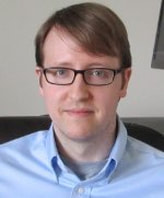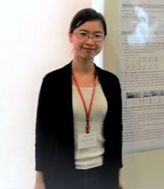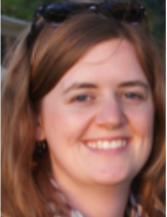POSTDOCTORAL FELLOWS

Megan Boudewyn
I am a postdoctoral researcher in the Cognitive Neuroscience of Language Lab and the Translational Cognitive and Affective Neuroscience Program at the University of California, Davis. My research is aimed at better understanding: (1) how the brain handles discourse comprehension, particularly the integration of multiple sources of meaning in context, (2) the relation between individual differences in cognitive abilities (such as working memory and cognitive control) and language comprehension ability, and (3) deficits in language comprehension and cognitive control in schizophrenia.
I am a postdoctoral researcher in the Cognitive Neuroscience of Language Lab and the Translational Cognitive and Affective Neuroscience Program at the University of California, Davis. My research is aimed at better understanding: (1) how the brain handles discourse comprehension, particularly the integration of multiple sources of meaning in context, (2) the relation between individual differences in cognitive abilities (such as working memory and cognitive control) and language comprehension ability, and (3) deficits in language comprehension and cognitive control in schizophrenia.

Taylor R. Hayes
I am studying how people read program code. This project seeks to develop statistical models of code reading informed by code corpora and behavioral studies using eye tracking and pupillometry. Models of code reading have the potential to identify best coding practices and make code easier to read, learn, develop, and maintain.
I am studying how people read program code. This project seeks to develop statistical models of code reading informed by code corpora and behavioral studies using eye tracking and pupillometry. Models of code reading have the potential to identify best coding practices and make code easier to read, learn, develop, and maintain.

Yujing Huang
Yujing is interested in how different components of language interact. Her research interest includes how meaning is expressed via syntactic structure (i.e., the syntax-semantics interface) and how sound interacts with syntax (i.e., the phonology-syntax interface). She is also interested in developing statistical models for data analysis.
Yujing is interested in how different components of language interact. Her research interest includes how meaning is expressed via syntactic structure (i.e., the syntax-semantics interface) and how sound interacts with syntax (i.e., the phonology-syntax interface). She is also interested in developing statistical models for data analysis.

Cassandra Jacobs
Cassandra is a language researcher of many hats. Her research applies techniques from natural language processing, learning, and memory to the study of language processing. She is especially interested in how recent and lifelong experience with language can influence the words and phrases speakers select and the expectations that comprehenders have about what they will hear or read.
Cassandra is a language researcher of many hats. Her research applies techniques from natural language processing, learning, and memory to the study of language processing. She is especially interested in how recent and lifelong experience with language can influence the words and phrases speakers select and the expectations that comprehenders have about what they will hear or read.

Laurie Lawyer
Dr. Laurie Lawyer has a PhD in Linguistics and is a research scientist at the Center for Mind and Brain. Her research includes fMRI studies of English orthographic processing by native signers. She also studies auditory linguistic processing in hearing individuals, particularly speech perception and the composition of linguistic word forms.
Dr. Laurie Lawyer has a PhD in Linguistics and is a research scientist at the Center for Mind and Brain. Her research includes fMRI studies of English orthographic processing by native signers. She also studies auditory linguistic processing in hearing individuals, particularly speech perception and the composition of linguistic word forms.

Gwendolyn Rehrig
Gwendolyn studies how people use acoustic and syntactic information to process spoken sentences in real-time. She is interested in how people apply their linguistic knowledge to language processing tasks, and whether they are able to learn from recent experience in order to improve processing efficiency.
Gwendolyn studies how people use acoustic and syntactic information to process spoken sentences in real-time. She is interested in how people apply their linguistic knowledge to language processing tasks, and whether they are able to learn from recent experience in order to improve processing efficiency.